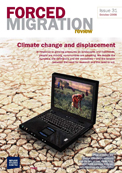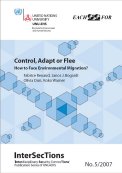The International Institute for Environment and Development produced a movie on pastoral nomads in Niger and the increasing pressures they face as their traditional pastures dry up. The description of the movie is below.
Diffa is a hot and arid region. Neighbouring Lake Chad has dried up over recent decades to a small fraction of its former size, due to less rainfall and water being diverted to irrigate fields of cotton. This has left destitute thousands of people reliant on the capture and smoking of fish around its margins. For some herders, however, the retreat of the lake’s shoreline has brought positive benefits, since what had formerly been underwater is now covered in thick pasture.
The highly mobile camel herders of the region do well on this grazing, and on the shrubs and bushes that are becoming established in the old lake bed. Mobile phones have given them access to market prices and informed them of where to find good water supplies across the region, while having part of their family settled in town gives them access to new knowledge and opportunities.
For others, the repeated droughts of recent decades have brought deeper poverty and they face great difficulty in getting back on their feet as viable herders. With the loss of their cattle,
many have been forced to settle, with just a few head of sheep and
goats. Mobility is essential to keeping a family’s livestock assets in good condition, and able to make best use of the patchy vegetation and water offered by this region.
So the outlook is poor for them, particularly given the projected changes in climate. These indicate that the region is set to get hotter as a result of global warming and, while it’s uncertain whether rainfall will increase or decline, it is likely to come in more intense storms. With dry spells becoming more intense, pastoral herders are going to need their mobility more than ever to ensure they can take advantage of good grazing wherever it occurs.
Source: International Institute for Environment and Development



